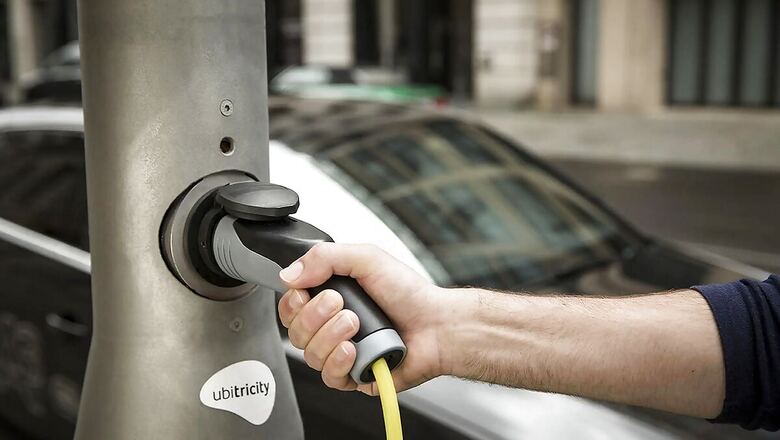
views
In a recently held press conference, Union Road Transport and Highways Minister Nitin Gadkari said that India will become the top electric vehicle (EV) manufacturing hub in due course of time. Noting that India has got tremendous capability for making green power, he said that: “We are power surplus… This is time for Indian economy to use electric as power."
India is also planning to offer fresh incentives to companies making electric vehicles (EVs) as part of a broad auto sector scheme it expects to attract $14 billion of investment over five years. While Indian govt is pushing big time on electric vehicles, there are a lot of challenges that EV makers are facing, a reason why we have limited options in the country. We list down top 5 such challenges EV makers are facing –
Bank Finance
A strong bank finance mechanism is still missing in the country. Only a few banks like SBI and Axis, to name a few, are offering loans on selected models. The government should ask banks to offer loans on electric vehicles, which will augment sales.
Awareness
Another important factor that would transform the industry is creating awareness about green vehicles. The Central and state governments can play a crucial role in motivating and encouraging citizens to adopt e-vehicles. We have seen in the case of Delhi wherein the state government is doing a tremendous job in creating awareness, which has encouraged more people to adopt EVs.
B2B
India’s e-commerce sector has shown a steep growth curve of growing over 200% YOY, hence its dependence on logistics increases proportionately. One major reason for the growth in EV adoption by B2B players is the cash factor – electric vehicles are cheaper to maintain compared to ICE vehicles. Corporates in India are also proactively transitioning towards electric vehicles. For instance, Amazon India and Flipkart have announced that they will deploy EVs in their fleet of delivery vehicles. The future of the B2B is positive and we will see a lot of traction coming from this segment for the next 2-3 years.
State Government policy
Many states, including Delhi, Maharashtra, Andhra Pradesh, Bihar, Chandigarh, Haryana, Karnataka, Kerala, Madhya Pradesh, Odisha, Meghalaya Punjab, Tamil Nadu, Telangana, Uttar Pradesh and Uttarakhand have rolled out their EV policy. However, some states are yet to implement the policy. The early implementation of state-level policy could assist in creating a larger ecosystem in the country that would help the industry to grow at a much faster pace. Additionally, the state government policy should be focused on demand generation for the initial period that would help in getting more volumes on the road.
Charging Infrastructure
We have seen rapid movement here. Around, 1,300 charging stations have been set up till now. Many corporates have ventured into the segment and started installing charging stations across the country. We anticipate that in the next 5-6 years, we would be able to create robust charging infrastructure in the country.
Read all the Latest News, Breaking News and Coronavirus News here. Follow us on Facebook, Twitter and Telegram.



















Comments
0 comment